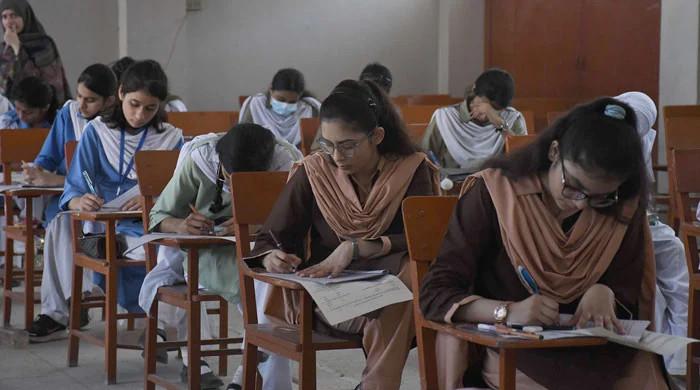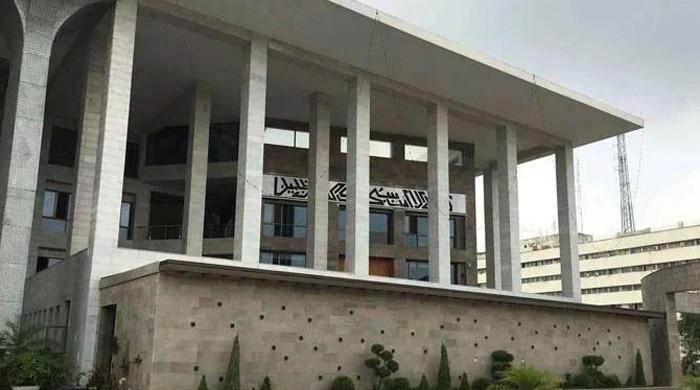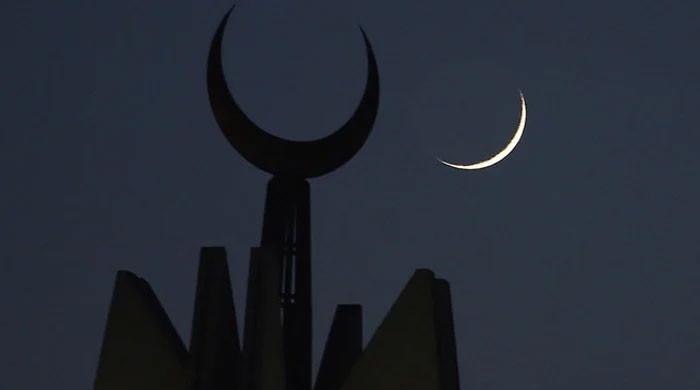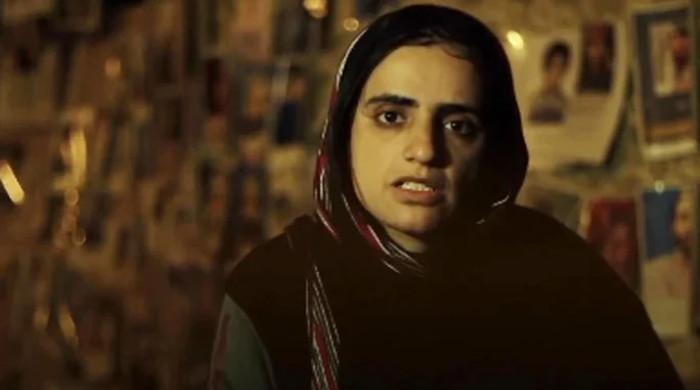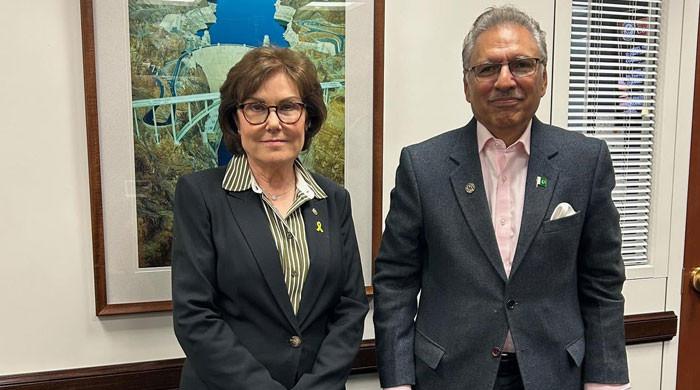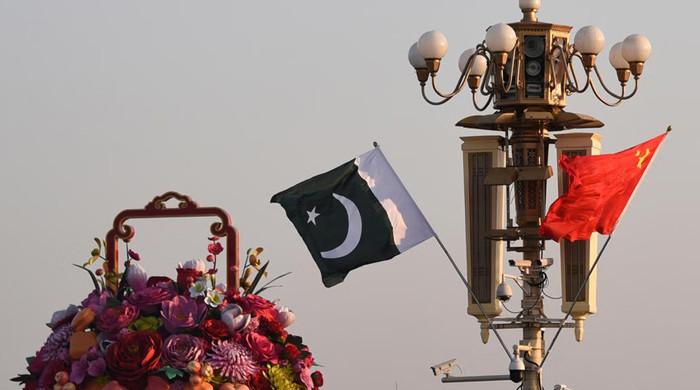Pakistan 'dangerously' close to civil war, warns Mustafa Khokhar
Credibility of institutions, parliament, and politics has ended, says former PPP senator
May 13, 2023
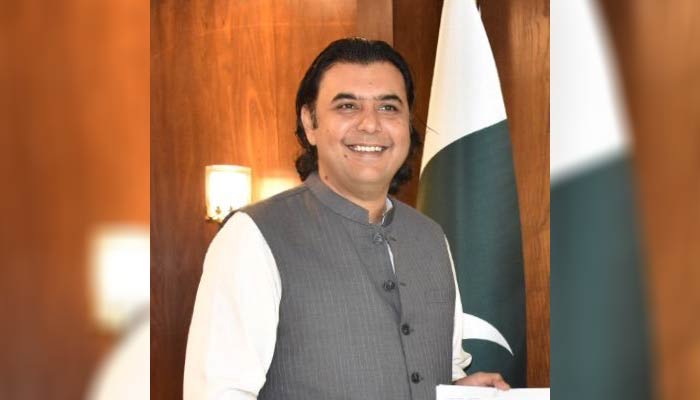
- Khokar says he has been drawing attention to this dangerous situation.
- Former PPP senator accuses PTI chief, PDM, establishment for situation.
- Authorities barred from arresting deposed PM in any case till May 15.
KARACHI: Former senator Mustafa Nawaz Khokhar has warned that the current situation has come "dangerously" close to a civil war in Pakistan.
The credibility of the institutions, including parliament — as well as of politics— has ended, he said on Friday as the country passes through political turmoil.
“I have been drawing attention to this dangerous situation from the platform of Reimagining Pakistan,” said Khokhar, who parted ways with the Pakistan Peoples Party (PPP) in December last year, weeks after stepping down as senator.
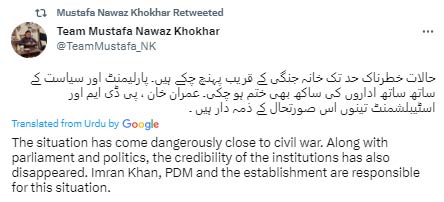
The outspoken politician said Pakistan Tehreek-e-Insaf (PTI) Chairman Imran Khan, the Pakistan Democratic Movement (PDM) and the establishment were all responsible for this situation in the country.
To save Pakistan from becoming a failed state, he said, all parties have to sit together immediately.
Political turmoil
Pakistan for the past several days has been embroiled in what can only be called "unprecedented" political and economic crises. While its economic and political woes are not new, things took a drastic turn on May 9 after the arrest of the PTI chairman from the premises of the Islamabad High Court by paramilitary troops on the directives of the country's anti-graft body — the National Accountability Bureau (NAB).
In a very dramatic manner, the troops broke through the windows of the IHC's biometric department and arrested Khan. Subsequently, the high court declared the arrest to be "legal".
The former prime minister was then whisked away to NAB's Rawalpindi office.
As soon as the news spread, PTI workers and supporters in various cities of the country took to the streets in increasingly-violent protests.
As the protests that led to the death of at least nine people and left several others injured escalated into attacks on properties of the government and the army — including the General Headquarters (GHQ) in Rawalpindi, the building that housed Radio Pakistan in Peshawar and the core commander's house in Lahore — the government retaliated by shutting down social media platforms and blocking cellular phone data.
Undeterred, the protesters continued, declaring that Khan's arrest was a "red line" that must not be crossed. The Punjab and Khyber Pakhtunkhwa (KP) governments then announced that they would be requesting the army to be deployed into the provinces to help with the rising violence.
The horrific events ultimately led to several countries and international platforms expressing their concern regarding the country's situation.
During this, Pakistan's currency fell to a historic low, reaching Rs 300 per dollar, regular life was disrupted as schools and businesses remained shut adding additional strain to an already burdened economy.
However, on May 11, a Supreme Court bench led by Chief Justice Umar Ata Bandial declared Khan's arrest "illegal".
Yesterday, in another massive relief to Khan and his party, the PTI chief got blanket relief from the IHC as the authorities were barred from arresting the deposed prime minister in any case till Monday morning.
While protests cooled down, the stand-off between the PTI and the incumbent government is far from over.




